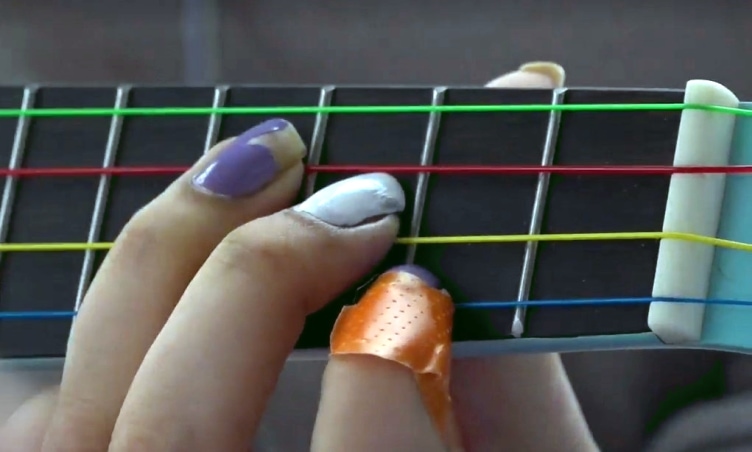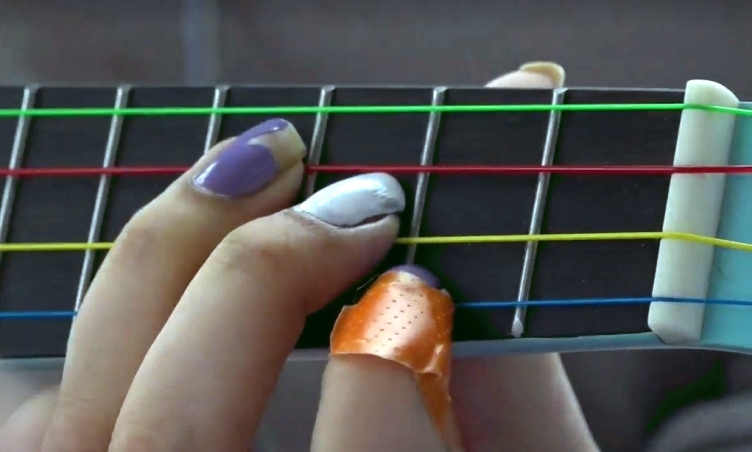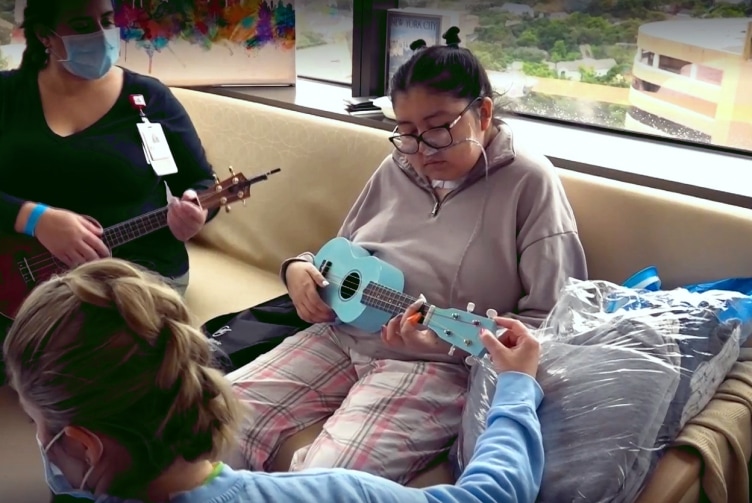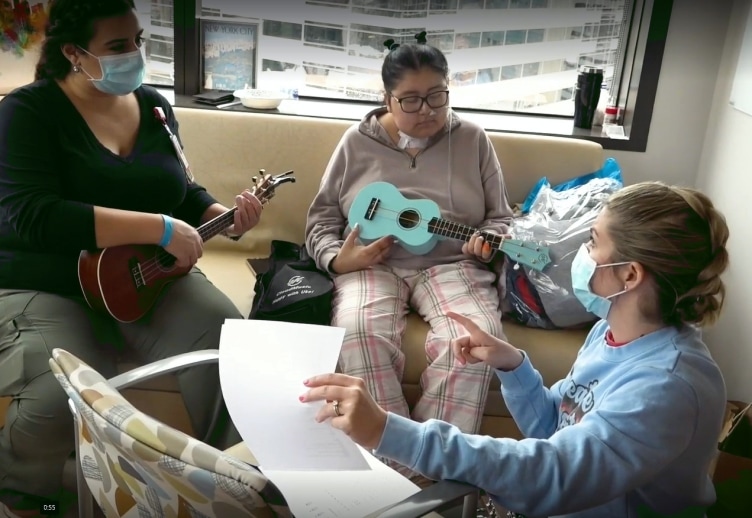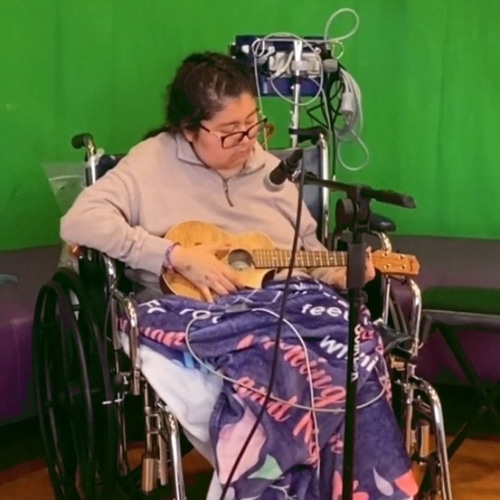NMT and the UKC: Using the Ukulele in Patient Rehabilitation
Marial A. Biard
MM, MT-BC, NMT
I hum to myself as I put my ukulele back at the end of the day, “Todo va esta bien, everything will be alright.” This song reminds me of two things; an incredibly brave friend’s journey through COVID, and the therapeutic power of the ukulele as a clinical tool for rehabilitation. Kelly was diagnosed with COVID-19 in January 2021 and her health quickly deteriorated resulting in a lengthy hospitalization and double lung transplant at Texas Children’s Hospital. Music Therapy was referred to help keep her body strong, and provide coping and calming opportunities during her long days until transplant. Throughout this process Kelly was resilient, positive, and determined to get out of the hospital and back to her life. When the ukulele was introduced into her treatment plan, everything aligned. All of her hard work become tangible… and audible.
Below is Kelly’s story and a few ways the ukulele provided a perfect platform for Neurologic Music Therapy interventions in her physical, cognitive, and emotional rehabilitation:
Physical Rehabilitation
After Kelly’s surgery, her entire body was very weak from weeks on an ECMO machine which helped oxygenate and circulate her blood. For Kelly’s physical rehabilitation I utilized her love for Justin Bieber in my Neurologic Music Therapy treatment plan to facilitate Pattern Sensory Enhancement (PSE). This technique used the musical components of her preferred music (i/e/ rhythm, tempo, dynamics, etc.) to increase motivation and provide structure for her to march her legs and move her arms. PSE on the ukulele helped increase global gross motor strength and endurance while working out her new lungs. I created soothing sounds with a strong pulse for her to entrain her body to and complete exercises while listening to her favorite songs. Through live music on the ukulele Kelly was given a new context to keep her motivated and “Holding On.”
Once her body was stronger, Kelly received her own Ukulele Kids Club ukulele! Therapeutic Music Instruction began. Her uke was immediately decorated with stickers and personal flare on the back. Her connection and excitement with the instrument was immediate. Learning ukulele highlighted Kelly’s resiliency. Working on fine motor control and dexterity with shaking fingers and an unbreakable spirit, Kelly learned her first chord shapes and songs. Using both arms in a bilateral exercise proved challenging at first, but Kelly rose to the challenge and with each practice session grew stronger and stronger.
Cognitive Rehabilitation
It was not just her body regaining strength, Kelly’s mind was getting a workout too! The ukulele was a shining beacon through brain fog often associated with COVID-19 patients. The NMT Technique of Music Executive Functioning Training (MEFT) on the ukulele was used to assist her in learning chord shapes, strumming patterns, and lyrics. MEFT helped her create and recognize patterns in the music structure, while working on her short and long-term memory recall. The meaningful design UKC ukuleles is easy and approachable for first time learners. The color coded strings of UKC ukes are designed to help make the learning and remembering process easier. Another important role UKC played in Kelly’s rehabilitation were the guided practice resources on the UKC website. This meant her playing could occur independently and outside of music therapy sessions. As her music therapist, watching her body and mind heal and grow stronger was incredibly rewarding; but my favorite part of her rehabilitation was much harder to measure and quantify…
Emotional Rehabilitation
…Because my favorite part was the emotional healing made possible by the ukulele. Kelly’s rehabilitation experience culminated in an impactful co-treatment with the Child Life Media Production Team: creating her very own music video! Kelly displayed a thoughtful and compassionate approach to her music video. She used the song Toda Va Esta Bien, to honor her mother’s legacy. Additionally, her video displayed her significant rehabilitation and voiced her gratitude to her family and the staff who supported her during her hospitalization. Throughout this process, Kelly’s humor resurfaced! Often times you could hear laughter coming down the hall from her room. It was inspiring to watch her anxiety ease and depression lift as her body and mind grew stronger.
The ukulele is not typically the first instrument introduced to music therapists for clinical application of NMT techniques. But, Kelly’s story makes it clear this little instrument can have huge impact in the physical, cognitive, and emotional domains of a patient’s rehabilitation and healing process. I feel fortunate every day my journey as a music therapist lead me to the intersection of NMT and the UKC. Now, every time I reach for my uke in the in-patient rehab unit or during a physical therapy co-treatment session I know, “toda va esta bien.”

